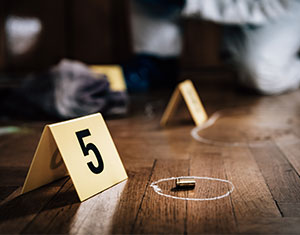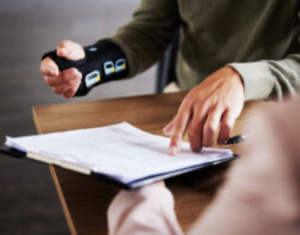An Experienced Atlanta Attorney for Victims of Violent Criminal Attacks
We see it on the news every day, and do our best to take steps to be aware and never look to become a victim. However, violent crimes can occur anywhere, whether it be a parking lot, apartment complex, or store. These vicious attacks can often be without reason and vary in method, however, the physical, emotional, and mental scars are often the same.
Violent crimes can leave you understandably scared and confused about what to do. To ensure you get the compensation you deserve, you need an attorney who is not only knowledgeable but also compassionate toward your needs.
What is a Violent Crime Injury Case in Georgia?
A violent crime is a crime in which a victim is harmed by or threatened with violence. Violent crimes include:
- Rape and sexual assault
- Robbery
- Assault
- Murder
When you are the victim of a violent crime, you can be left with a variety of severe injuries, including:
- Bone fractures and lacerations, including skull fractures
- Joint damage
- Traumatic brain injuries
- Cuts, bruises, and abrasions
- Disfigurement
- Paralysis
- Wrongful death
If you or a loved one were injured in a crime, you may be entitled to financial damages. To learn more about what compensation might be available, contact Apolinsky & Associates today to schedule your appointment.
Further Reading: Examples of Negligent Security that Lead to Serious Injury
Proving Liability & Causation in Violent Criminal Attacks in Georgia
Holding another party legally accountable for negligence in a personal injury case involving violent crime can be extremely challenging. There are four essential points required to demonstrate negligence in Georgia:
- The defendant owed a duty of care to the plaintiff, such as a property owner keeping their property safe for everyone who visits
- The defendant breached that duty of care, such as the property owner failing to keep their property safe
- The negligence was a direct cause of the accident
- The plaintiff suffered damages (losses) as a result of the accident
Who Can Be Held Liable In Civil Court For Violent Attacks
Potential defendants in these civil injury cases can include:
- Property owners and managers.
- Hotels and motels.
- Apartment complexes.
- Nightclubs and bars.
- Concert venues and promoters.
- Amusement parks.
- Gas stations.
- Shopping mall owners.
- Security firms.
- Rideshare companies.
- Colleges/universities.
- Churches.
- Hospitals.
- Schools.
- Government agencies.
Claims can be filed for premises liability, such as negligent security (failure to keep a property safe for guests with adequate lighting, locks, or surveillance), or for things like negligent hiring and retention (failure to properly vet employees or retaining employees despite actions that reasonably indicate a propensity to cause harm).
If you are a victim of violent crime in Georgia, our dedicated and experienced Atlanta crime victim attorneys at Apolinsky & Associates, LLC, will work to hold all negligent parties accountable while guiding you through what can be a difficult legal process.
Statute of Limitations for Injuries Due to Violent Attacks
Under GA Code § 9-3-33, the statute of limitations holds that injured parties have two years to bring personal injury claims forward. After two years, a court will dismiss your claim. Oftentimes, insurance companies will engage in stalling techniques to avoid paying you anything.
Victims of personal injury caused by violent crime should not attempt to navigate the complex personal injury claims process all on their own. It is imperative that you work with an experienced Atlanta personal injury attorney experienced in dealing with violent crime cases.
Compensation and Damages Recoverable in Violent Crime Injury Cases in Georgia
Serious injuries can and do occur in violent attacks. You may need extensive medical care, or even long-term care after an assault. Fortunately, you may be able to recover some of those losses, including:
- Medical expenses, including emergency care and ongoing treatments
- Lost wages
- Reduced or lost earning capacity
- Long-term disability
- Property damage
- Pain and suffering, including emotional injuries
- Diminished quality of life
If you or a loved one has been badly injured due to a criminal attack and would like to discuss what possible damages you could recover, contact Apolinsky & Associates, LLC, for a case evaluation.
Further Reading: What is Pain and Suffering and How Is Compensation Value Calculated?


















